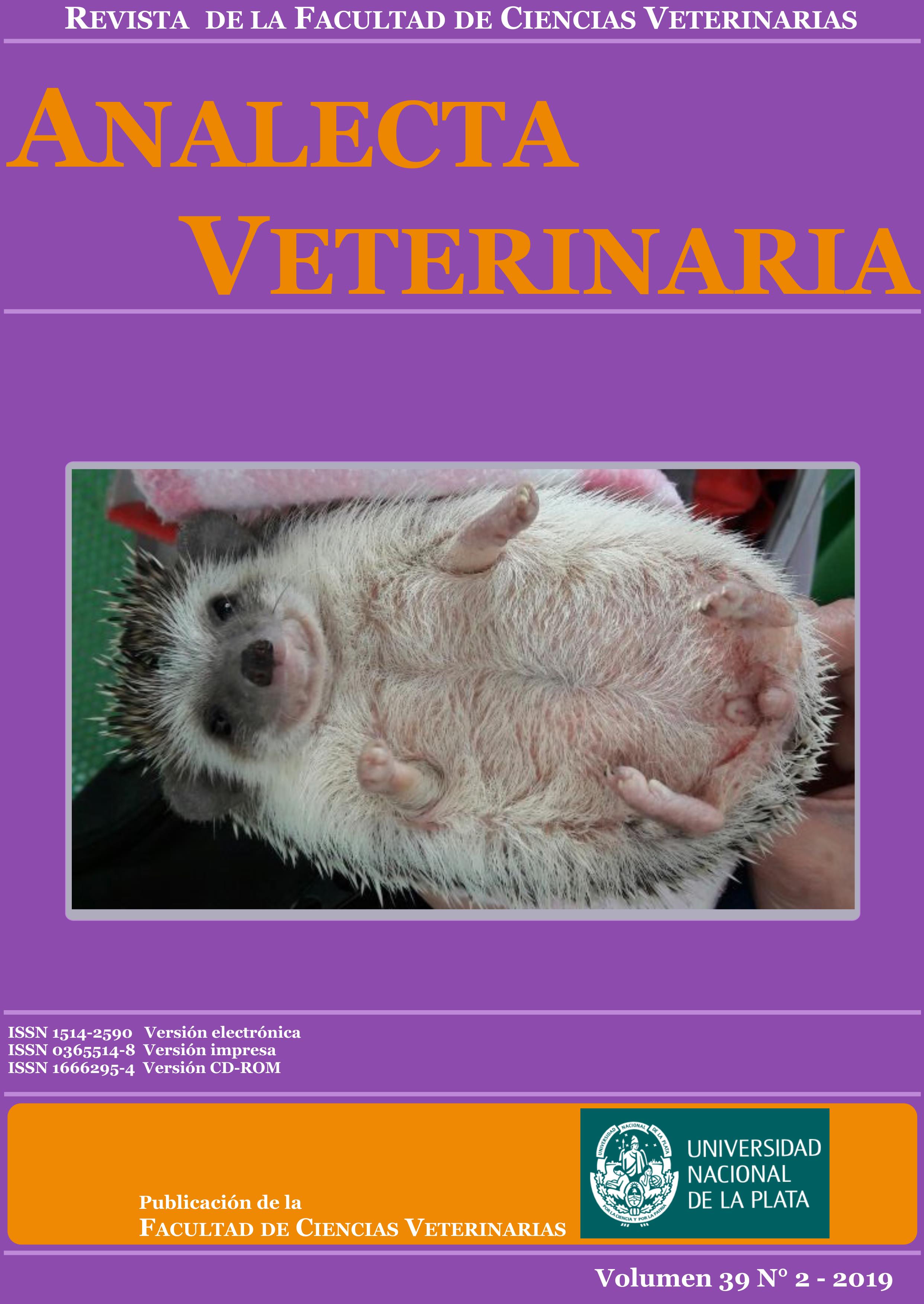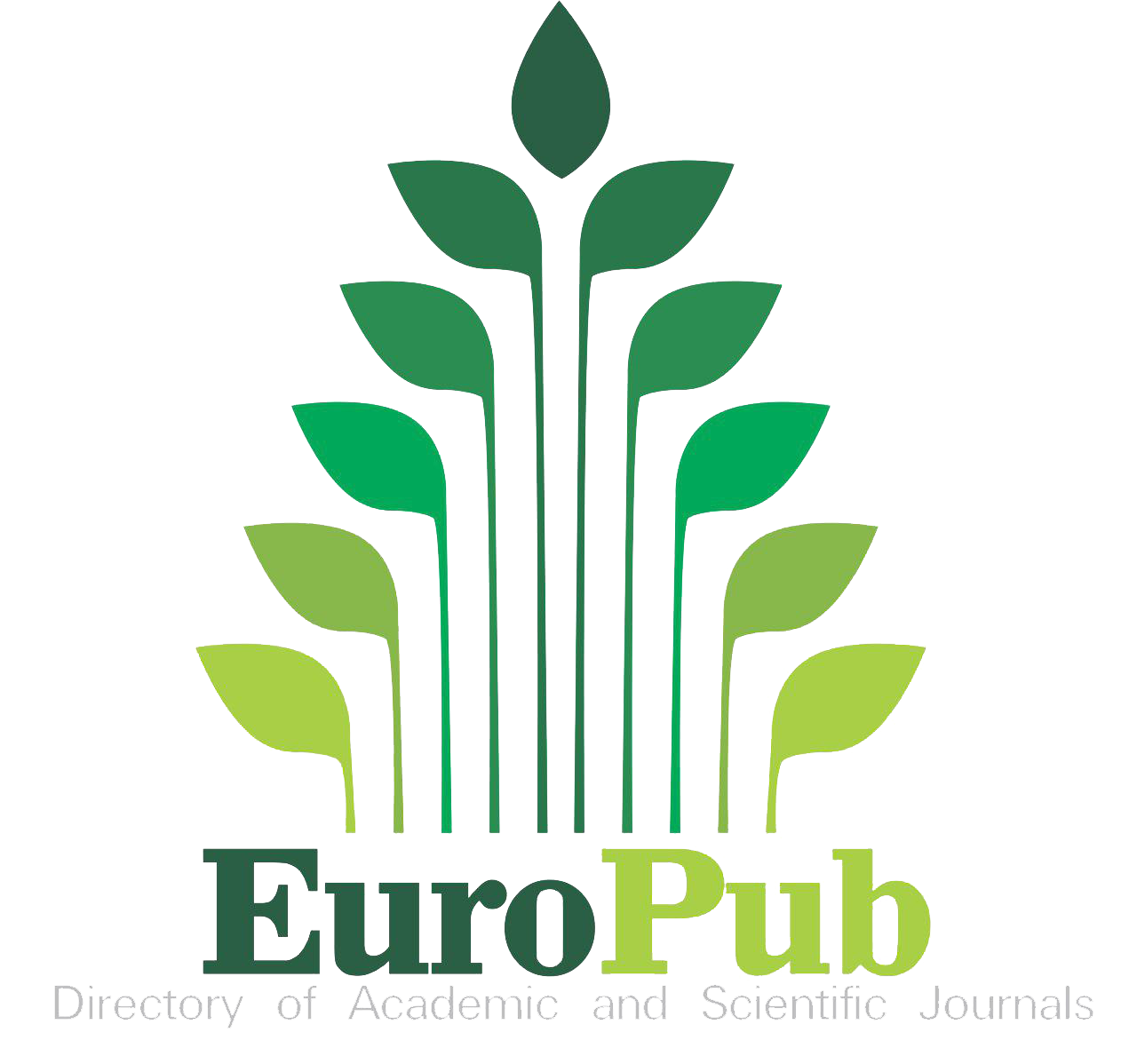Pólipo y leiomioma uterinos en un erizo pigmeo africano (Atelerix albiventris)
DOI:
https://doi.org/10.24215/15142590e042Palabras clave:
Atelerix albiventris, pólipo endometrial, leiomioma uterinoResumen
El erizo pigmeo africano (Atelerix albiventris) se ha convertido en una mascota exótica. Es por ello que se
han realizado diversos estudios sobre aspectos de salud y enfermedad de esta especie. El objetivo del
trabajo fue presentar un caso de un pólipo y leiomioma uterinos en un erizo pigmeo africano. En 2016,
una hembra de 2 años se presentó a la consulta con hematuria. La radiografía y ecografía abdominales
revelaron una masa intrauterina. Se realizó ovariohisterectomía y se constató la presencia de dos masas
de tejido. Mediante estudios histopatológico e histoquímico se formuló un diagnóstico de pólipo y
leiomioma uterinos. La paciente se recuperó totalmente. Doce meses postintervención la misma
concurrió a consulta para realizar un control anual en el cual se no se evidenciaron signos clínicos de la
enfermedad.
Referencias
Chambers JK, Shiga T, Takimoto H, Dohata A, Miwa Y, Nakayama H, Uchida K. 2018. Proliferative Lesions of the Endometrium of 50 Four-Toed Hedgehogs (Atelerix albiventris). Vet Pathol. 55(4):562-571. doi: 10.1177/0300985818758467.
Done LB, Deem SL, Fiorello CV. 2007. Surgical and medical management of a uterine spindle cell tumor in an African hedgehog (Atelerix albiventris). J Zoo Wildl Med. 38(4):601-3. doi: 10.1638/2006-0066R.1
Heatley JJ, Mauldin GE, Cho DY. 2005. A review of neoplasia in the captive African hedgehog (Atelerix albiventris). Seminars in Avian and Exotic Pet Medicine. 14(3):182-92. doi.org/10.1053/j.saep.2005.07.002
Kennedy PC. 1998. Histological classification of tumors of genital System of domestic animal. World Health Organization International Histological Classification of Tumors of Domestic Animals. Second Series Vol. IV.
McEntee K, Nielsen SW. (1976). XVI. Tumours of the female genital tract. Bulletin of the World Health Organisation. 53(2-3):217-26
Mikaelian I, Reavill DR, Practice A. 2004. Spontaneous proliferative lesions and tumors of the uterus of captive African hedgehogs (Atelerix albiventris). J Zoo Wildl Med. 35(2):216-20. doi:10.1638/01-077
Okada K, Kondo H, Sumi A, Kagawa Y. 2018. A retrospective study of disease incidence in African pygmy hedgehogs (Atelerix albiventris). J Vet Med Sci. doi: 10.1292/jvms.18-0238.
Phair K, Carpenter JW, Marrow J, Andrews G, Bawa B. 2011. Management of an extraskeletal osteosarcoma in an African hedgehog (Atelerix albiventris). Journal of Exotic Pet Medicine. 20(2): 151-155. doi.org/10.1053/j.jepm.2011.02.011.
Phillips ID,Taylor JJ, Allen AL. 2005. Endometrial polyps in 2 African pygmy hedgehogs. Can Vet J. 46(6):524-7.
Raymond JT, Garner MM. 2001. Spontaneous tumours in captive African hedgehogs (Atelerix albiventris): a retrospective study. J Comp Pathol. 124(2-3):128-33. doi:10.1053/jcpa.2001.0441.
Santana EM, Jantz HE, Best TL. 2010. Atelerix albiventris (Erinaceomorpha: Erinaceidae) Mammalian Species. 42(857): 99-110. doi.org/10.1644/857.1
Schlafer DH, Miller, RB. Female genital system. En: Maxie, MG. 2007. Pathology of domestic animals. Elsevier Sanders, Philadelphia, PA. vol. 3, 5th ed. 429-564.
Sohn GS, Cho S, Kim YM, Cho CH, Kim MR, Lee SR. 2018. Current medical treatment of uterine fibroids. Obstet Gynecol Sci. 61(2):192-201. doi: 10.5468/ogs.2018.61.2.192.
Tsai FY, Chang HM, Chang HK, Kao JP, Liao JW. 2016. Case report: endometrial stromal sarcoma and liposarcoma in an African hedgehog (Atelerix albiventris). Taiwan Veterinary Journal 42 (03): 181-186. doi.org/10.1142/S1682648515720117.
Publicado
Número
Sección
Licencia
Los autores/as conservan los derechos de autor y ceden a la revista el derecho de la primera publicación, con el trabajo registrado con la licencia de atribución de Creative Commons, que permite a terceros utilizar lo publicado siempre que mencionen la autoría del trabajo y a la primera publicación en esta revista.

Analecta Veterinaria por Facultad de Ciencias Veterinarias se distribuye bajo una Licencia Creative Commons Atribución-NoComercial-SinDerivar 4.0 Internacional.




























